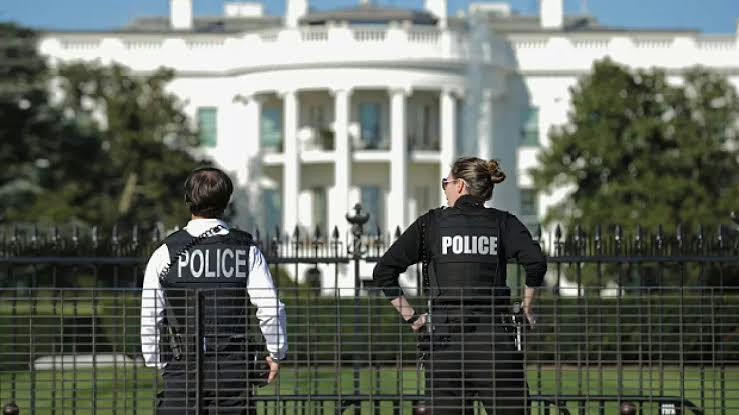Christmas is a time of year when people around the world come together in the spirit of giving, love and hope for mankind, but there are many countries that don’t celebrate Christmas.
For Christians, Christmas is one of the most important periods on the calendar. This religious and cultural celebration is observed by billions of people annually on December 25.
Christian countries re-enact nativity scenes, which depict the birth of Jesus Christ. They also partake in religious observances such as midnight Mass.
Christmas traditions vary considerably from country to country. The people of many different nations install and light Christmas trees, hang advent wreaths, and put out their Christmas stockings for Santa Claus to fill with treats.
But of the nearly 200 countries on Earth, a handful of non-Christian nations don’t recognise Christmas and have no form of public holiday or observation to mark the nativity of Jesus Christ.
At least 40 countries don’t have official public holidays at Christmas, though more than half of these nations do have at least some form of public observation, such as the occasional Christmas tree.
Here are the 18 countries in which the populations do not observe Christmas in any way at all.
Afghanistan
The Muslim-majority nation has had a turbulent relationship with Christianity and its holidays for decades. This heightened during the Taliban rule of the 1990s, and “two decades on, there is little sign that the Taliban has changed”, said John Pontifex at The Times.
The tension between Christians and other minority faiths in Afghanistan is likely to continue now that the extremist group is once again in control of the country. For those religious groups, the takeover caused “a catastrophe”, said Pontifex.
Christmas is almost never celebrated here, with those that choose to do so running the risk of persecution.
Algeria
Another Muslim-majority nation, Algeria has not observed Christmas in any official capacity since it gained its independence from France, a mostly Catholic nation, in 1962.
However, the country’s population of Christian African migrants, alongside diplomats and locals, have held small celebrations. A market, organised by a the faith-based charity Caritas in 2017, came as a sign of “stable security in a country that has rebounded from a decade of Islamist militant violence”, Reuters reported.
Bhutan
With a Christian population of just 10,000 (less than 1% of the country’s total), Christmas is not part of the Bhutanese calendar, where Buddhism takes precedence.
Brunei
The public celebration of Christmas has been banned in the tiny oil-rich Islamic state of Brunei since 2015, with anyone found violating the law facing up to five years in jail or a fine of US $20,000, or both.
Although non-Muslims are allowed to celebrate the holiday within their own communities, they are not allowed to share their plans with the country’s Muslims, who make up about two-thirds of the population.
According to the country’s Ministry of Religious Affairs, the rules are “intended to control the act of celebrating Christmas excessively and openly, which could damage the aqidah (creed) of the Muslim community”. One expat told UCANew.co.uk that “the only way to enjoy the festive season is to get out for a vacation”.
China
According to the Daily Express, Christmas in China is “another working day and schools, offices and shops all remain open”, adding: “The country is officially a non-religious state, so Christmas was once completely banned.”
In 2018, authorities began “cracking down on Christmas”, with citizens ordered “to instead focus on promoting traditional Chinese culture”, said The Guardian.
Comoros
At 98% Sunni Muslim, the Comoros archipelago in the Indian Ocean takes a firm stance against Christianity. Sunni Islam became the religion of the state following a referendum in 2018, which World Watch Monitor reported was “expected to have a tough impact on the country’s small Christian minority”.
WorldAtlas reported that the open practice of Christianity is prohibited, and Comoros has “been on the World Watch list for the past 22 years for the persecution of Christians”
Libya
Christmas has not been celebrated in this predominantly Muslim nation for years. However, 24 December is the country’s independence day, which gives cause for celebration. This year, presidential elections will also take place on Christmas Eve, the first national election for seven years.
Mauritania
The government of Mauritania, despite having a small population of Christians within its borders, chooses not to recognise them at all, with the most recent census claiming that 100% of the country is Muslim.
Mongolia
The overwhelmingly Buddhist nation of Mongolia does not observe any public holidays around Christmas, and few Christians live here. 1 January is a public holiday, but citizens also hold a three-day celebration for the Mongolian Lunar New Year, known as Tsagaan Sar, at the start of the first lunar month.
North Korea
Christmas “is something of a non-event” in North Korea, reported The Independent. The country’s extreme, authoritarian interpretation of atheism as supposedly laid out in communist doctrine has led to the total outlawing of all things Christmas.
The North Korean government works hard to ensure information about religious holidays does not enter the so-called hermit kingdom,” the newspaper continued. Anyone who did mark the holiday could be “imprisoned, tortured or ordered to death”.
Pakistan
The country’s extremely small Christian population “remains full of insecurity” about celebrating Christmas, according to news site Parhlo, and there can be a “threat to the lives of the people celebrating the events”.
The 25 December is a public holiday in Pakistan, but to commemorate the birthday of Muhammad Ali Jinnah, considered to be the founder of the nation, rather than the birth of Jesus.
Sahrawi Arab Democratic Republic
Christmas is a non-event among the predominantly Islamic population of the Sahrawi Arab Democratic Republic, a partially recognised state that claims sovereignty over the entire territory of Western Sahara.
Saudi Arabia
Christmas trees or the holding of any Christmas-related festivals were for years banned for decades in Saudi Arabia, said Al Bawaba.
But “Christmas trees and glitter ornaments” for sale in the capital Riyadh are “a sign of the changing times”, reported The Arab Weekly. Crown Prince Mohammed Bin Salman bin Abdulaziz has claimed he is committed to steering the kingdom towards an “open, moderate Islam”.
Somalia
In 2015, Somalia, which adopted Sharia law in 2009, banned the celebration of Christmas outright, warning that such Christian festivities could threaten the nation’s Muslim faith.
Tajikistan
Six years ago, the mostly secular former Soviet state of Tajikistan outlawed Christmas trees and giving presents in schools. “The use of fireworks, festive meals, gift-giving and raising money” were prohibited through a decree issued by the education ministry.
Tunisia
Although Christmas is not banned here, Tunisia has almost no public celebrations of the holiday and it is a regular work day for the country.
Uzbekistan
Despite almost 10% of the country being Eastern Orthodox Christians, Christmas is not celebrated here. Instead, Uzbekistan’s New Year celebrations closely resemble Christmas festivities, complete with trees and the exchange of gifts. However, it is a secular holiday.
Yemen
The war-torn state of Yemen has not officially observed Christmas for decades. Last year, Yemeni citizens in the neighbourhood of Al-Jahmiliya lit “hundreds of candles” on 25 December, “to draw the world’s attention” to end the war in their city Taez, Euronews reported.
Credit: The Week












Leave a Reply